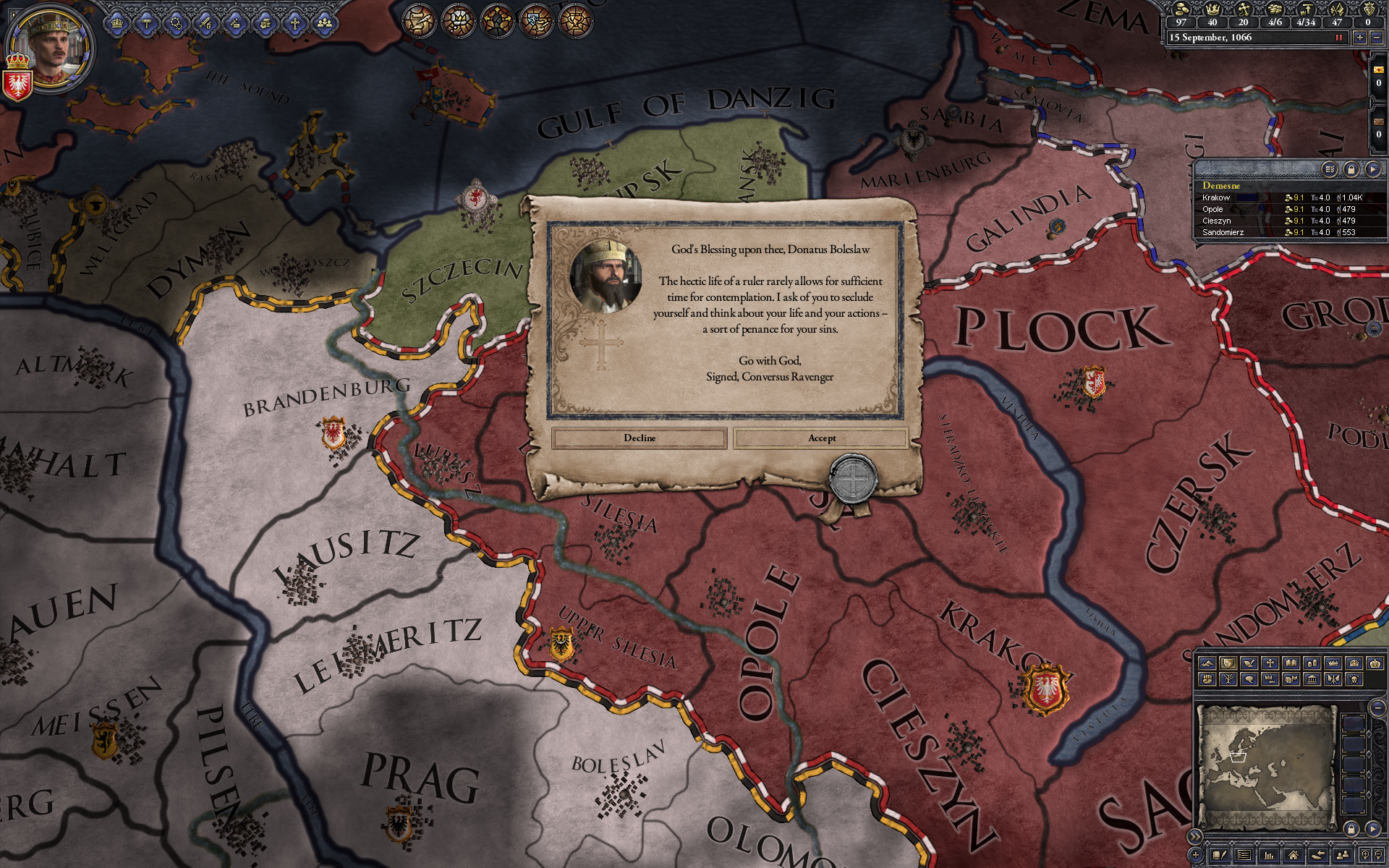Hi everyone!
It’s time to spill the beans on some actual content in the upcoming expansion Monks and Mystics, which we announced last Friday at our Fan Gathering (I hope all the good folks who showed up had a fun time - I sure did!)
The genesis for this expansion came about a long time ago, when I started thinking about secret societies and conspiracies and wrote it down as one of several outlines for a couple of “mini-expansions”. Now, for various reasons we never went ahead with that expansion model and most of the ideas have, by now, been used in bigger expansions. However, the concept of fraternities stuck and the time is now auspicious!
The core feature of Monks and Mystics is something we simply call “Societies”. Societies are groups of like-minded characters who are working together for personal and mutual profit. Some Societies are perfectly legit (that’s the “Monks” part in Monks and Mystics); others are perhaps viewed with some suspicion (e.g. Alchemists) but are hardly criminal. Finally, there is the subversive kind, of which the Demon Worshippers are certainly the worst. (Such shadowy and outright evil cults can be actively combated through a new job that can be given to the Court Chaplain.)
The basic loop goes like this; you put out word that you’d like to join a specific Society. After a while (immediately, for open Societies), you will be approached and offered membership as a novice. At this lowest rank, you usually don’t get many new abilities (but if the Society is secret you can now at least see the leader and the other members.) Now and then, you will be given missions that will further the goals of the Society. If you complete them, it will give you more power within the Society, which should eventually allow you to “level up” in Rank. The new Rank will give you access to at least one new special ability. Using these abilities (they are basically just a special type of Decision) can also increase your power within the Society, and so it goes, all the way up to being the leader of the whole Society.

Of course, members of the same Society tend to like each other, and will sometimes (depending on the nature of the Society) even be obedient towards members of higher rank; or at least not hostile. This creates a whole new way of discouraging factions and pave the way for loyal vassals (or even a loyal Pope!)
That’s all for now. In a later dev diary I will go through the actual Societies and talk about their particular powers and abilities...
Be sure to check out the funny teaser trailer for Monks and Mystics, and remember the Livestreams later today, where Emil and Steven’s quest for the best German cookie continues, followed by the Norman adventures of Chris, David and yours truly!

It’s time to spill the beans on some actual content in the upcoming expansion Monks and Mystics, which we announced last Friday at our Fan Gathering (I hope all the good folks who showed up had a fun time - I sure did!)
The genesis for this expansion came about a long time ago, when I started thinking about secret societies and conspiracies and wrote it down as one of several outlines for a couple of “mini-expansions”. Now, for various reasons we never went ahead with that expansion model and most of the ideas have, by now, been used in bigger expansions. However, the concept of fraternities stuck and the time is now auspicious!
The core feature of Monks and Mystics is something we simply call “Societies”. Societies are groups of like-minded characters who are working together for personal and mutual profit. Some Societies are perfectly legit (that’s the “Monks” part in Monks and Mystics); others are perhaps viewed with some suspicion (e.g. Alchemists) but are hardly criminal. Finally, there is the subversive kind, of which the Demon Worshippers are certainly the worst. (Such shadowy and outright evil cults can be actively combated through a new job that can be given to the Court Chaplain.)
The basic loop goes like this; you put out word that you’d like to join a specific Society. After a while (immediately, for open Societies), you will be approached and offered membership as a novice. At this lowest rank, you usually don’t get many new abilities (but if the Society is secret you can now at least see the leader and the other members.) Now and then, you will be given missions that will further the goals of the Society. If you complete them, it will give you more power within the Society, which should eventually allow you to “level up” in Rank. The new Rank will give you access to at least one new special ability. Using these abilities (they are basically just a special type of Decision) can also increase your power within the Society, and so it goes, all the way up to being the leader of the whole Society.

Of course, members of the same Society tend to like each other, and will sometimes (depending on the nature of the Society) even be obedient towards members of higher rank; or at least not hostile. This creates a whole new way of discouraging factions and pave the way for loyal vassals (or even a loyal Pope!)
That’s all for now. In a later dev diary I will go through the actual Societies and talk about their particular powers and abilities...
Be sure to check out the funny teaser trailer for Monks and Mystics, and remember the Livestreams later today, where Emil and Steven’s quest for the best German cookie continues, followed by the Norman adventures of Chris, David and yours truly!


